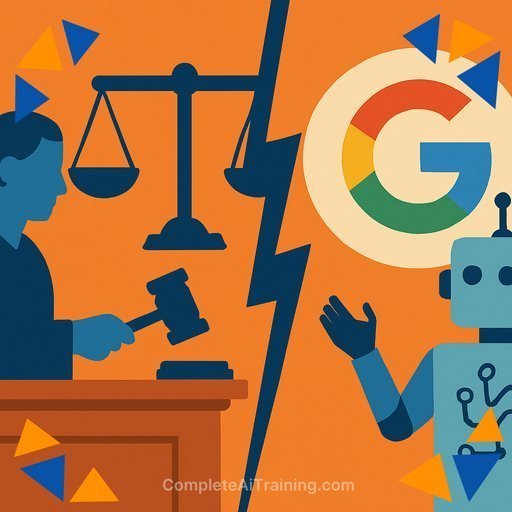Penske Media Sues Google Over AI "Overview" Summaries: What PR and Communications Teams Need to Know
Penske Media has filed a federal lawsuit against Google, alleging the company uses AI-generated "Overviews" to summarize news without permission and siphon traffic from its properties, including Variety, Billboard and Rolling Stone. The suit, filed in Washington, D.C., claims Google conditions visibility in search on allowing articles to be used in AI summaries.
Penske argues that roughly a fifth of searches that link to publisher sites also display Overviews, and that share is likely to grow. Google says Overviews improve the experience, broaden discovery across publishers and that it will defend against the claims.
Why this matters for PR and communications
- Less click-through from Search means fewer eyes on original reporting and your clients' full context, quotes and assets.
- Headline and message control weakens when AI summaries front-run the source content.
- Attribution and measurement get fuzzier, impacting earned media value, SEO reporting and channel mix decisions.
- Licensing and consent are moving to the forefront; publishers and brands will reassess how and where content can be reused.
Key allegations and responses
- Allegation: Google uses publisher content in AI summaries without consent, lowering site traffic and ad/subscription value.
- Leverage claim: Inclusion in Search is linked to allowing AI use; without that leverage, the suit says Google would need to pay for summaries or training data.
- Scale: Penske cites Overviews appearing on about 20% of searches that link to sites and expects growth.
- Google's position: Overviews are preferred by users, increase overall use of Search and create new discovery opportunities; it calls the claims meritless.
- Backdrop: A recent antitrust ruling left publishers without an AI-summary opt-out, increasing pressure for licensing deals. OpenAI has signed multiple publisher agreements; Google has been slower to ink similar deals.
What to do now: Practical steps for comms teams
- Audit brand and executive queries: Track when Overviews appear, what they say, and whether they cite your preferred sources.
- Tighten press pages: Add crisp summaries, bullet highlights, and structured data so your intent is clear if surfaced or summarized.
- Review robots, meta tags and syndication terms with legal and SEO partners. Decide what you allow for AI training and presentation.
- Refresh measurement: Split out "Search with Overviews" vs. traditional referral patterns to understand impact on reach and engagement.
- Rework media kits: Make assets and quotes unmistakably attributable; include canonical links and clear usage language.
- Plan for negotiations: Be ready with value benchmarks if platforms move to paid licensing for summaries or training.
- Adjust pitching: When possible, prioritize outlets and formats that retain context and link equity (exclusive packages, owned explainers, multimedia).
- Crisis prep: Draft talking points on AI summaries, miscontextualization risk and your organization's content-use policy.
Policy and legal watchlist
- Any government guidance on AI-generated summaries, consent signals and compensation frameworks.
- Platform-level controls for opting content in or out of summaries vs. training, and whether those controls affect ranking.
- Industry alliances that set licensing standards publishers and brands can adopt.
What to tell executives and clients
- Overviews can reduce direct traffic and context, so we're tightening source control and measurement.
- We are updating content signals and usage terms while exploring licensing paths where needed.
- Our media strategy will favor placements and formats that protect message clarity and attribution.
Upskill your team
If you need structured training to update comms workflows for AI in search and media, see our AI upskilling for PR and communications.
Your membership also unlocks:






